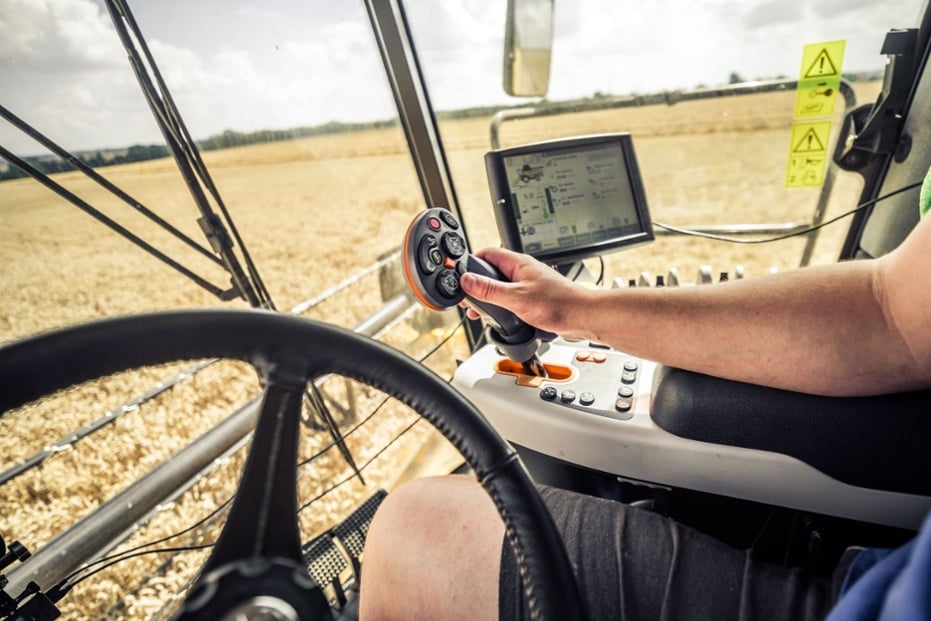
In this guide we’ll talk about ag tech jobs and what this means for agriculture!
For some, farm life and technology might seem like they are on opposite ends of the spectrum, but they intersect in ways that may be surprising to some. There is a misconception among those not in the industry that farming is “low-tech” when in reality farmers have been working hand in hand with technology for as long as human beings have farmed, always looking to answer the question of how to do more, better, and with less work.
The only difference now is the relatively recent introduction of digitization in agriculture.
Necessity breeds technological innovation, and both our planet and agricultural workforce have been calling for ways to leverage today’s technology to meet our current shortcomings. Workers in the agriculture industry are in a unique pivotal position to help create a better tomorrow for the planet and its inhabitants.
The question plaguing us now is how we continue feeding the world’s growing population with depleting resources in a way that is sustainable (or even restorative) and doesn’t harm us or the environment.
Luckily, there are ways to get creative with our tight agricultural market and adapt to our ever-changing surroundings, thanks to a little help from modern technology.
Let’s talk about how agriculture technology jobs are helping digitize and transform the agriculture industry!
The Problem
There’s no question that there are challenges when it comes to today’s agriculture. An aging workforce, urbanization, stresses on the environment, growing demand for food, and economic struggles have all wreaked havoc on the industry and talent market. Attracting newer and younger candidates to meet the labor demands is a challenge when there are fewer people coming from agriculture backgrounds.
In fact, to help give some context, the industry that used to employ almost half of the US workforce in 1870 now employs only 2%.
How do we continue to feed the growing global population with our current resources? With tomorrow’s compromised resources? How do we attract new and enthusiastic talent to an industry that often doesn’t get the respect it deserves?
The Solution
Technological innovation has always been the answer to addressing shortcomings in every industry. The difference is that we’re now seeing more digital technology as the ticket to maximizing productivity and resources with what we have and attracting fresh hires to the industry.
The core objective in agricultural technology application is answering the question: “What are we doing that could be done better?” The definition of “better” is going to depend on the context. “Better” could mean using fewer production resources, less manpower, with automation, with less damage to the environment… The list goes on and continues to build on itself as we continue to learn about agriculture and how our production systems fit into our planet’s big picture.
Ag tech jobs are able to draw in candidates from other backgrounds that don’t necessarily have farm experience but might have experience working in various technology sectors such as software development, artificial intelligence, and engineering. They’re bringing in different, fresh skillsets just in time to help address the growing need for food production, climate crisis, and labor shortages.
Technology is helping us do more with our resources, giving us insights into processes that allow us to fine-tune our operations for higher productivity and quality control, and automate things that don’t necessarily need human oversight. Technology empowers us to back our decisions with real data, eliminating the guesswork that translates into waste and unsustainability - something that we’re able to afford less and less of as time goes by.
Let’s look at some examples of how modern technology is intersecting with agriculture!
Ag Tech Jobs
These jobs all use technology to improve their processes and outcomes in a way that just isn’t possible without it. They’re just a few examples of how modern technology is helping us optimize our farming practices - there are many more out there, and they’ll keep evolving as technology changes!
Agronomist
To put it simply, an agronomist is an expert on crops. An agronomist uses their expertise to optimize the quality and output of a crop and is in high demand by farming corporations, seed companies, food companies, and fertilizer companies.
As an agronomist, you are well versed in the science and technology of food supply and production. You will use your knowledge in addition to the latest and best trends and methods for growing the crop you are specializing in. You will work closely with crop data and have a deep understanding of soil science. You will be involved in experiments that help determine and maximize plant nutrients and soil.
This is a highly specialized position that will require a deep understanding of the science and trends surrounding the crop you choose to work with. You will be an expert on granular and big-picture trends.
Agricultural Technician
Agricultural technicians hone in on very specific agricultural processes and procedures. As the expert, you will be involved in experiments, analysis, and data collection to help perfect outcomes and do things like improving crop yield, quality, or resistance to disease. You could also be involved in animal breeding and nutrition. You will be helping prepare specimens and record data in life science experiments.
The job requirements will vary based on what area you specialize in. With more and more farming relying on automation, we need people who are excited about technology use and innovation on the farm and want to keep learning about the new methods available to grow and produce our foods.
Basically, you will be helping solve problems that plague our current systems of operation in agriculture. This kind of job is good for someone who likes research and experimentation. Many will require an advanced degree, but there are also entry-level jobs available for you to get a taste of the role.
Farm Manager
A farm management position might not seem like a job that uses much technology, but with the amount of growth, farms have experienced it is just impossible to manage the same amount of land and scope of operations without its help. Digitization and automation allow you to go about day-to-day operations with more ease and use technology to help with oversight, giving you better insights into the quality of your practices and output.
You’ll need to know how to operate and manage farm equipment, along with general agricultural knowledge, and with the help of technology, you’ll be able to manage a significantly larger amount of land than you could ever before.
Custom Application
As a custom applicator, you are applying crop health products to a crop to protect it from threats such as pests and diseases that could otherwise compromise output and environmental health. This involves application of the latest technologies and equipment and is a highly specialized practice. In fact, in certain states you need a license to be able to give advice on or sell these control products.
This sector of ag tech has a significant hand in maximizing crop yields and mitigating environmental and health damages. You’ll need to be very detail-oriented, know your way around the appropriate equipment, and understand the products you are using. There are risks not only to the crops you are applying the products to but to consumer health and the environment.
Software Engineer
As an agricultural software engineer, you are at the helm of farming technology innovation. You have the opportunity to work with industry leaders on software that helps propel agriculture forward in sustainability and output control. You will be involved in identifying weak spots, fine-tuning current practices based on available data, and forecasting. You’ll need to be proficient in different software and technologies as well as how to integrate them.
The day-to-day life of a software engineer can vary greatly based on your specialty. One example of a job responsibility might be developing a system for processing data that predicts pest development.
These are just a few examples of jobs in agriculture that use digital technologies to get insights into our farming operations and help optimize output while mitigating different risks. With a little creativity, there are endless opportunities for tech application!
Concluding Thoughts
Moving forward, we need to be leveraging digital technology to adapt to the growing need for global food production, environmental sustainability, and labor capabilities. Ag tech jobs are revolutionizing one of the oldest practices known to man - farming - in a way that can keep up with our demands and unique challenges.
As these needs and challenges evolve, we’ll continue to evolve. The trick to keeping up with the global demand for food, environmental sustainability, and our resources is not only to continue learning about our relationship with agriculture and our environment with the help of technology - but to hold onto the drive to continue improving in the face of challenges.
The point is to keep working to create a better tomorrow than we have today. Who knows what the ag tech industry will accomplish in the years to come!






